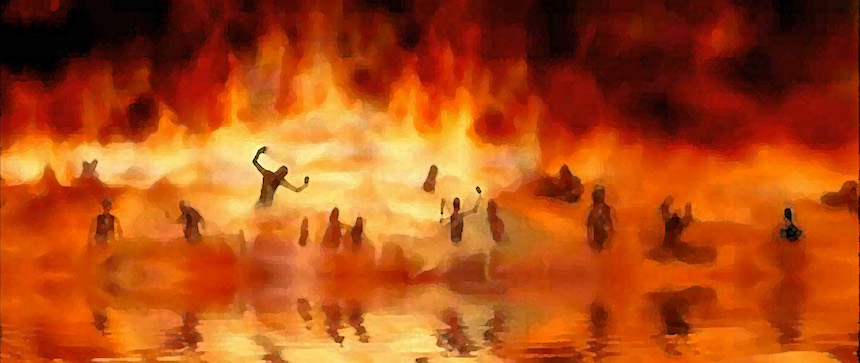Qur’an Cover-to-Cover: Day 8 (“Ya Sin”)


Today I’m going to be looking at a longer chapters of the Qur’an: Surah 36.
Surah 36 – “Ya Sin” (Ya-Sin)
This chapter covers the usual material. Muhammad’s commission by God is, of course, reaffirmed. He is told that some people to whom he speaks will not listen to him, but his job is to warn them anyway.
This chapter describes a pair of missionaries arriving at a city. It is not clear if this is an historic story or not. Either way, the message of the missionaries is rejected, but then a man comes from the city and pleads with his fellow inhabitants to listen to these men. He draws particular attention to the fact that they do not ask for money. For his own part, the man testifies that Allah made him, he will return to Him and thus Allah is worthy of worship and the intercession of the city’s false gods is worthless. The text abruptly switches to speaking about Paradise so my footnotes suggest that this means that the man was killed for his faith. While I can understand this explanation, the Qur’an seems to me to jump randomly from topic-to-topic without warning on a regular basis.
Allah then identifies various “signs” to be submitted for consideration:
- The bringing forth of life from dead earth
- The production of fruit from trees
- The departure of the sun at nighttime and the cycles of the moon
- The salvation of Noah’s family through the Ark
I’m not 100% sure, but it seems that these signs are all meant to point to new life and Allah’s saving help.
We now jump back to talking about disbelievers. We are told that they object to the idea of feeding the hungry since “if Allah had willed, He would have fed”.
We return to talking about the Resurrection. Those in Heaven recline on adorned couches, eating fruit and having whatever they want. Those in Hell, burn.
There are a couple of statements towards the end of this surah which I rather liked for their poetic quality:
When describing how the deeds of the wicked will testify at the Divine Judgment, ayah 65 says: “That Day, We will seal over their mouths, and their hands will speak to Us, and their feet will testify about what they used to earn”.
When referring to Allah’s mercy and guidance, aya 66 says: “We could have obliterated their eyes, and they would race to [find] the path, and how could they see?”
The chapter ends with Allah listing all the things He has given mankind, lamenting that they still instead choose to worship false gods.
Questions
Q1. Ayah 6 says that Muhammad’s forefathers were not warned. In Islam, would they be culpable and liable for Hell?
Q2. Which city is referenced in ayah 13?
Q3. Ayat 8-10 make it seem that Allah is preventing the people from receiving Muhammad’s warning. Is that correct, or are the chains a poetic preparation for Hell?
Q4. What is the reference in ayah 14 of men being sent in pairs? Missionary proclamations in Muhammad’s time?
Q5. Does ayah 29 refer to the destruction of the people who killed the man?
Q6. What is the purpose of the various “signs” in ayah 33-40? Are these meant to be figures of new life and Resurrection?
Q7. In ayah 47, the disbelievers are disputing the need for charity, yes?
Q8. The text speaks of two trumpet blasts at the end of time. The footnote associated with ayah 49 seems to suggest that everyone on earth is killed by the first blast and then all people from all ages will then be resurrected with the second (ayah 51). Is this correct understanding?
Q9. Did the people really worship Satan in ayah 60, or is this simpy a reference to all false gods?
Q10. Is the mercy described in aya 66 available to all people, or just those to whom Allah sent Messengers?
Q11. What does it mean when ayah 68 says “We did not give [Muhammad] knowledge of poetry, nor is it befitting for him. It is not but a message”? The Qur’an is poetry, yes? It’s not saying that poetry is his natural talent, right?
No real new material was dealt with today. It was pretty much identical to previous chapters: Muhammad is a prophet, mankind must worship Allah, and there will be death and a judgement.